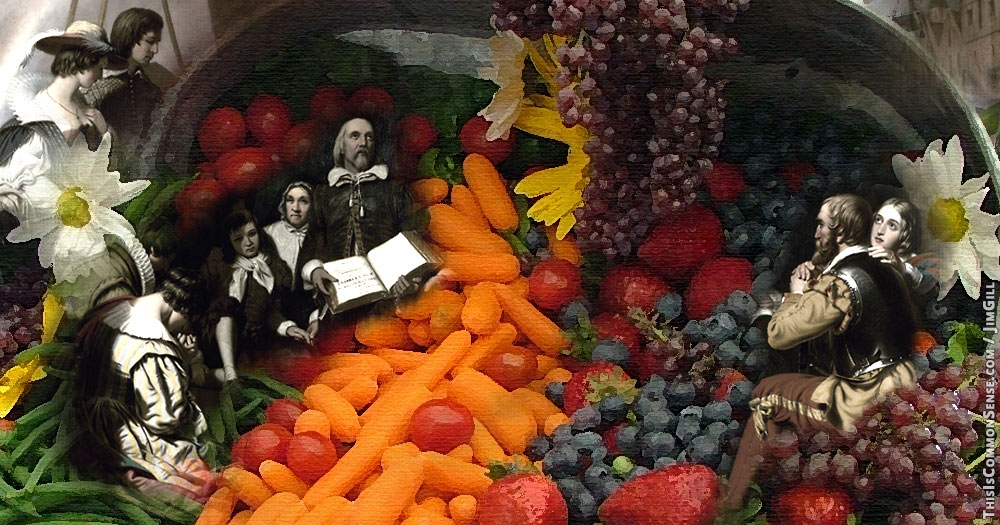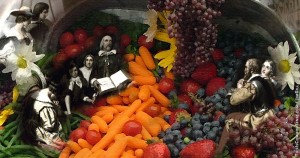The Pilgrims we were taught about in school deserve a Paul Harveyesque “Rest of the Story” treatment. Most students were not told about how they tried communism before they wised up, though I actually had a teacher who made a point of it.
Yes, initially, the “community” owned everything, and all worked together for the greater good and the Glory of God.
Of course, it was a disaster.
The commune plan sparked sloth, shirking, family quarrels and resentment — with men regarding their wives’ work for others a “kind of slavery.”
And then near-starvation.
The solution? Privatize! They allotted land, setting “corne every man for his owne perticuler.”*
That worked well, but they still had to endure a late Spring drought, and things looked bleak. Then, after prayers and expressions of humility (as Governor William Bradford explained**), the rain returned:
It came, without either wind, or thunder, or any violence, and by degreese in yt abundance, as that ye earth was thorowly wete and soked therwith. Which did so apparently revive & quicken ye decayed corne & other fruits, as was wonderfull to see, and made ye Indeans astonished to behold; and afterwards the Lord sent them shuch seasonable showers, with enterchange of faire warme weather, as, through his blessing, caused a fruitfull & liberall harvest, to their no small comforte and rejoycing. For which mercie (in time conveniente) they also sett aparte a day of thanksgiveing.
So the most obvious political lesson to be drawn from the Pilgrim experience got lost in stories of rain and corn and Indians and such.
But it’s worth noting that Bradford wrote his discussions of communism — and how very wrong Plato and his ilk were — in his primary text, while his talk of the drought was an afterthought in his mss., and appears as a footnote in the edition I’ve consulted.
Both*** Plymouth stories deserve to be told.
This is Common Sense. I’m Paul Jacob.
*I wrote about this a few years ago, offering some of the juiciest quotations, in “Plymouth’s Great Reform.”
** Bradford’s History of Plimoth Plantation, available for free at Gutenberg.org.
***The traditional date for the first Thanksgiving is given a few years earlier, with Squanto showing up and helping them plant and all. However, Bradford’s memoirs do not use the term thanksgiving (or “thanks-giveing”) or even “thanks” in relation to the harvests of 1621 at Plymouth Colony. But there is talk of plenty of food, including that Thanksgiving specialty, the turkey:
And now begane to come in store of foule, as winter aproached, of which this place did abound when they came first (but afterward decreased by degrees). And besids water foule, ther was great store of wild Turkies, of which they tooke many, besids venison, &c. Besids they had aboute a peck a meale a weeke to a person, or now since harvest, Indean corne to yt proportion. Which made many afterwards write so largly of their plenty hear to their freinds in England, which were not fained, but true reports.


2 replies on “Thanksgivings, 1623 AD”
The true story is always worth a reminder. Thanks, and you can do it again next year if you like!
Didn’t the Indians have a substantial role in their survival, too? If memory serves me correctly. Wait a minute, I reviewed a book on this: Mayflower, by Nathaniel Philbrick: http://brianrwright.com/CoffeeCoasterBlog/?p=5574. The Pilgrims were basically a bunch of religious zealot ‘f’ ups who only survived by help from the Indians and from probably one two relatively freethinking individuals–who thought more along the lines of ‘Praise God, but row toward shore.”